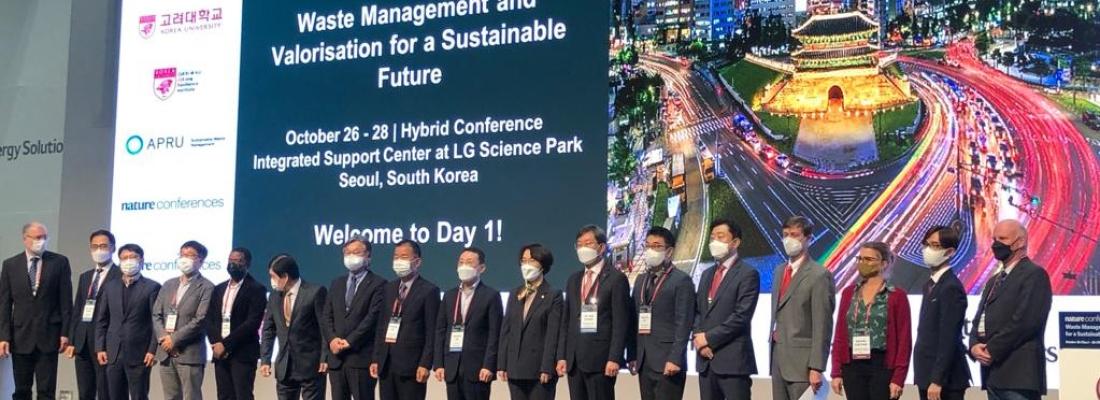Bioeconomy Reading time 5 min
The NoAW project receives an enthusiastic response from scientists in Korea
Published on 16 December 2021

This year, the ‘Nature’ conference in Seoul, South Korea, was devoted to the management and valorisation of waste to ensure a sustainable future. This hybrid event brought together a large panel of speakers who included Nathalie Gontard, in her capacity as coordinator of the NoAW project. An INRAE Research Director in the Agropolymer Engineering and Emerging Technologies Unit in Montpellier, Nathalie was invited to present the project’s results, particularly regarding the production of biodegradable plastics. “Plastic waste is a major issue, not only in Korea but throughout the world” explains Nathalie Gontard. “Discussing the development of innovative solutions was therefore one of the principal objectives of this important international event”.
During her presentation, Nathalie Gontard described the processes developed by NoAW which can transform agricultural waste into high value added bioproducts. She has drawn on her fifteen years of research in the field of packaging, as well as the work carried out in the context of the EcoBioCAP project she had previously coordinated and which focused specifically on biodegradable plastics.
Bacteria can transform agricultural waste into biodegradable and recyclable plastics
“The two-stage anaerobic digestion process we have developed with NoAW can produce green energy, biofertilisers and effluents containing high levels of volatile fatty acids”, explains Nathalie Gontard. “We use these fatty acids to cultivate the bacteria that will transform them into reserve polymers (polyhydroxyalkanoates, or PHA). The bacterial polymers are then mixed with lignocellulosic residues – for example, shredded vine shoots – to reduce the environmental and economic cost of the resulting materials and adjust their functional properties, such as permeability to water or oxygen”. Unlike standard plastics made from petrochemicals that can last for hundreds or even thousands of years in the environment, these “green” polymers degrade within one or two years! Furthermore, they can be reused and recycled: “Our research has shown that we can use renewable resources that are not in competition with food resources in order to rapidly produce biodegradable materials (thus of environmental value) which are also recyclable, and thus of economic value.”
Future collaboration
The experts at the conference gave a very positive reception to the new opportunities offered by NoAW in terms of implementing an integrated and cross-disciplinary approach of innovative ecodesign (technical, socioeconomic, health, etc.) that can even predict the environmental and societal impacts of its processes. As a result of the conference, Nathalie Gontard is now organising collaborative work with Polytechnique Montreal (Canada) in order to apply approaches similar to NoAW to the development of new biodegradable electronic materials which can reduce the environmental impact of new digital transition technologies.
For more information
The NoAW project (2016-2021) for which Nathalie Gontard was awarded the Stars of Europe Prize on 2 December 2021 involved 32 multidisciplinary academic and private sector partners from Europe and China working to achieve “zero waste” in agriculture. How? By designing new ecologically efficient approaches that can reduce environmental impact and benefit the economy and society by converting agricultural waste into green energy and biobased products.
